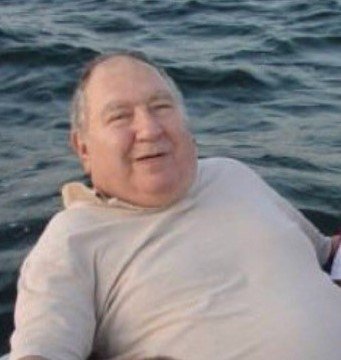
Obituary of Peter G. Silverstein
September 20, 2019 at age 81. Predeceased by his parents, Kurt & Thea Silverstein. He is survived by his loving wife of 55 years, Fredda; devoted children, Susan (Scott) Singer & Michael (Lisa) Silverstein; adored grandchildren, Samantha, Gabrielle, Shira & Sydney; sister, Renee Goldberg; nieces Robin (David) Markowitz & Jackie (Bob) Breakstone, Shari Pizer & Judi (David) Laymon. Peter was a Holocaust Survivor & a veteran of the US Army.
The family wishes to thank the Jewish Home & the Palliative Care Unit at Strong for their care & support.
Funeral Services will be held on SUNDAY, September 22, 2019 at 10 AM at Brighton Memorial Chapel, In. (3325 Winton Rd. S.) Click here for directions. Interment, White Haven Memorial Park.
The family will receive friends at 100 Thackery Road on SUNDAY 3-5 PM & MONDAY 2-4 & 7-9 PM. Click here for directions. Shiva will conclude at the Jewish Home on TUESDAY 3-5 PM. Click here for directions.
Donations may be made to the MS Society Upstate NY, 1000 Elmwood Avenue, Rochester, NY 14620 or the Palliative Care Unit at Strong University of Rochester Medical Center, 601 Elmwood Avenue, Box 687, Rochester, NY 14642 in Peter's memory.
THE FAMILY REQUESTS NO FLOWERS.
From the Rochester Holocaust Survivors Archive
Peter Silverstein was born Gert Aaron Peter Silberstein on May 18, 1938, in Breslau, Germany, to Kurt and Thea Jablonski Silberstein. His older sister Renee Silberstein Goldberg, was born August 29, 1934, and now lives in Erie, Pennsylvania. Much of Peter’s testimony about the family’s experiences during the Holocaust is based on what his parents have told him.
Peter’s paternal great, great grandfather, Jacob had emigrated to Breslau from Kiev, Russia, as a young man in the 1800’s, trying to escape the pogroms. Walking from Kiev to Germany, he pretended to be deaf and dumb so as not to reveal his Yiddish accent. Jacob arrived in Breslau with the name of a tailor, also known as Mr. Silberstein, to whom he became apprenticed. Eventually Mr. Silberstein retired and gave his modest business to Jacob who expanded it to include custom-made suits and dry goods. Using his talents and creativity, and much hard work, Jacob’s business thrived so that by the time Peter’s grandfather took over, it was a large, thriving department store in Breslau called “Silberstein’s.”
By the time Peter’s father Kurt was born on November 15, 1900, the family was quite wealthy. Kurt earned two degrees, one in pharmaceuticals and the other in chemical engineering. Kurt met Peter’s mother, Thea Jablonski, who worked in her great uncle’s general store. They were married around 1928. Thea had escaped pogroms in East Prussia by hiding in a convent where she received her education. Kurt became a chemist/pharmacist by trade and developed a large pharmaceutical supply business with a large warehouse. Later he opened fifteen laundries which also offered dry cleaning from a patent Kurt received from the United States. Life was very good for the Silbersteins who led an “elite upper-crust German Jewish social life” with two maids and a cook until Hitler’s rise to power. Peter’s father and grandfather were active members of his large, stately “reform” synagogue with Cantor Wartenberger. His father was also one of the founding members of B’nai B’rith which met at the temple.
When Hitler came to power, the family’s wealth at first shielded them, but later in 1935, the Gestapo came to his house and ordered his father to hand over the keys to his trucks and buildings. He was under scrutiny for “cheating the public.” The family was warned to watch their step. In 1937 the Gestapo came to his grandfather’s house asking for their money and jewelry and took the paintings off the wall. The next day they returned for more. When the family claimed that the rest of their wealth was in bank vaults, they arrested Peter’s grandmother, Rosalia Yollis Silberstein and took her away, first to the police station and then, as the family found out later, to Theresienstadt and from there to Auschwitz where she perished. Grandfather Jacob died shortly after his wife’s arrest.
Peter’s father Kurt tried to arrange for a visa to come to the United States, but he was arrested and taken to Buchenwald at the end of 1937 for almost a year. The Gestapo took him away when they could not find any more valuables hidden in the house. Because Kurt was a chemist, the Nazis wanted him to work on chemical warfare. He refused.They beat him up regularly with hoses, breaking his nose and the knuckles on his hands.
The family had already applied for immigration visas to go to America, but were denied, even though they had obtained an affidavit of support from Thea’s brother, Kurt Lowe, who lived in Rochester, NY. The day after the Kristallnacht pogrom, Thea found out where her husband was incarcerated. She took the affidavit and traveled to Buchenwald, bringing in tow her daughter Renee and her infant son Peter. She also carried with her five bottles of cognac, hoping to bribe the guards to release her husband. From 10:00 AM to 4:30 PM she kept the guards drinking until they did not know the difference between a visa and an affidavit. A week later Kurt’s father arrived home, all beaten up and with tuberculosis.
Soon after his release from Buchenwald, Kurt found out about the possibility of obtaining passage on the ocean liner SS St. Louis. There was an auction for tickets. Kurt was one of the highest bidders and was able to book passage for himself, his wife and children as well as two relatives of his wife’s brothers.
Before leaving Germany, the family was able to send his Rochester uncle some furniture and other belongings from the several homes they owned. Thea was able to hide some of her loose jewels in a can of Kiwi Shoe Polish in case the luggage was searched.
The family left Germany from Hamburg on the SS St. Louis in the spring of 1939 on what they thought would be a trip to freedom. Captain Schroeder was in charge of the ship bound for Cuba. When the ship arrived in the harbor, however, Cuban officials would only let people off for exorbitant amounts of money. Most passengers had nothing left. The Captain then tried to take his passengers to the US, but were turned away.
After many days at sea, the Captain had no choice but to sail back to Europe. The ship stopped in Belgium and France where a few passengers were able to get off. It then docked in England where the British permitted people with small children, including the Silverstein family, to disembark. Because of baby Peter and Renee, the family finally found a safe haven. Kurt, however, was sent to the Isle of Mann and later the Isle of Wight because of his tuberculosis. The Jewish community found a family who offered them a room to live in. When Kurt returned after three months, recovered from his illness, he was still not allowed to work because he was labeled a “friendly enemy alien.” Kurt found work on the black market, making batteries for flashlights at home. The Jewish community also assisted the family until finally, Mr. Marks, of the Marks and Spencer’s Department Store, helped the family get better housing and clothing. Kurt had known Mr. Marks through his pharmaceutical business in Germany.
Peter’s earliest memories are of the Blitz. He vividly recalled the bombings – how the house shook with the constant explosions, the air raids, the blackout curtains, seeking safety in subways and sleeping on cots that had been set up there. Kurt became an air raid warden. Once while walking with his father, Peter saw a bomb blow up a bus. He remembers, painfully, that there were bodies, and parts of bodies, all over the place. In all, the family was bombed out of its home three times. Sister Renee was sent to a country boarding school, the Blenheim School for Girls, in Suffolkshire, England, so she could leave London and the Blitz. When the war was over, Peter remembers dancing in the streets of London.
Kurt began working in a wallet factory. He made several business suggestions to the owner who was quite impressed with his knowledge. Eventually, Kurt took over the business and it flourished. In February 1948, the family left England on the Queen Mary and landed in New York. They finally were able to join Thea’s brother Kurt Lowe in Rochester, NY. They rented a farmhouse in Irondequoit for three months and then an apartment for six months. Kurt got a part-time job bookkeeping on Norton St. This was the first of many jobs Kurt had. Another was working as a janitor for Daw Drugs. One day a man came in for a prescription which the pharmacist could not read so he called Kurt over to read it. The man, very impressed, asked Kurt why he was just a janitor. That man was Howard Samuels, the owner of the Cordite Chemical Plant, and, eventually, the mayor of the city of Canandaigua. Mr. Samuels asked Kurt to come in the next morning for an interview. When Kurt told him that had no transportation, Mr. Samuels sent his car for him. Kurt was interviewed and hired immediately to run the chemical division as well as given money to buy a car. The plant was eventually sold to Mobile Chemical with the understanding that Kurt would run the plastics division, which he did for many years until he retired.
His son Peter enlisted in the U.S. army in 1958 and received his honorable discharge in 1964. He is very proud of his service and has very fond memories of that time. On New Year's Eve, 1962, Peter was encouraged to go on a blind date by a fellow Holocaust survivor, Carl Wetzstein and his wife Kay. Little did he know that night his blind date, Fredda Getzlek, would become his wife. Peter and Fredda were married in October 1964 and bought a house in Henrietta, NY. where they raised two children, Susan and Michael. Peter worked as a salesman in the automotive department at Sears for 25 years. In 1988 he was diagnosed with multiple sclerosis and was forced to take early retirement. In an effort to do something productive, Peter became an active volunteer speaking in classrooms about his experiences during World War II. Peter is very proud of his family and is always happy to brag about his four granddaughters: Samantha, Gabrielle, Shira and Sydney.
Interview and Summary writtent by Jane Rushefsky
FUNERAL SERVICE
RECEIVING
RECEIVING
RECEIVING
RECEIVING
About Us
Opened as an alternative for our community, it is our mission to provide the Jewish population of Rochester with an affordable, modern and convenient choice at a time when the need is most important. We pledge to utilize our local ownership to offer a dignified array of services to Jewish families, and give back to the community we live in and serve.
Our Location
Brighton Memorial Chapel
3325 Winton Road South
Rochester, New York
14623
Phone: (585) 427-8520
Fax: (585) 424-6952
Email: brighton@brightonmc.com



